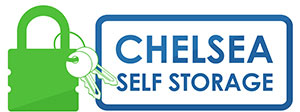Once upon a time the Goddess of Strife and Discord, Eris, gave a single golden apple to the Goddesses Aphrodite, Athena, and Hero … marked for “the fairest”. Paris judged that Aphrodite should receive the apple. In exchange, Aphrodite enchanted Helen – the most beautiful of all women – to fall in love with Paris, who promptly took her to Troy.
Why she did this remains something of a mystery – even to readers of Homer’s Iliad – but what we do know is that Helen was already married, to Menelaus who was the King of Sparta.
Now, some things never change, and unsurprisingly Menelaus didn’t take too kindly to this turn of events. So Agamemnon (his brother), King of Mycenae, led an army to Troy to get her back (and get a bit of revenge at the same time).
The problem – or one of them anyway – was that Troy was very well defended. This meant that the siege lasted for ten years, during which time many lost their lives, including poor old Paris (and also Achilles and Ajax and Hector).
And this is where possibly one of the most famous storage containers in the world comes into the story. You guessed … the Trojan Horse. We all know the story – the Horse was left outside the city as the Greeks sailed away – but hidden inside was a select force of men. Believing the Horse to be a victory trophy, the Trojans (you could argue, naively, although that’s with hindsight), brought it inside the city walls. During the night the men crept out of the Horse, opened the gates – and the Greeks (who had sailed back under cover of night) poured in, and, well, the rest is history.
3 interesting follow up facts
1. Did the war really happen? With all this talk of Gods and Goddesses, and golden apples, and giant wooden horses filled with soldiers, not to mention staggering naivety from a fighting force that had resisted everything thrown at them for ten years, most people believe it to be a myth. However, in 1868 a German archaeologist by the name of Heinrich Schliemann met the amateur British archaeologist Frank Calvert, and between them they concluded that Troy was situated at what is now known as Hissarlik. Most scholars now accept that this is indeed the site of ancient Troy … although whether there was a war, and a Trojan Horse, will probably never be known!
2. Based on the story, in computing terms a Trojan Horse is a malicious computer program that misrepresents itself as something useful and/or interesting … but on installation does bad things to the computer!
3. We rather glossed over the fact that Helen was “the most beautiful of all women”. Marlowe in his 1604 classic Doctor Faustus penned the famous line: “Was this the face that launch’d a thousand ships?” However, as we know, clearly beauty is a subjective thing – and very firmly in the eye of the beholder (or, as Keats would have it, is “truth”) – nonetheless this didn’t stop, in a moment of questionable genius, Thomas Fink (in The Man’s Book) describing the ‘Helen’ as a unit of measurement of beauty; thus 1 Helen (1H) is the quantity of beauty to be more beautiful than 50 million women (being the number of women estimated to have been alive in the 12th Century BC when the events took place). Note that the scale is logarithmic on a base of 2, i.e. for beauty to increase by 1 Helena (Ha), a woman must be the most beautiful of twice as many women. Thus 1H = 25.6 Ha. (And if you can work that out you’re a better mathematician than me). There don’t appear to be any comparable units of measurement for male beauty, which says quite a lot …
Chelsea Self Storage
We can’t promise you golden apples. We can promise you brilliant storage containers (not filled with Greek soldiers!) and exceptional customer service.
We are conveniently located a short walk from the Kings Road in Chelsea, and have satisfied clients across London who can testify to our capability and customer service.
Please click here for our home page; here for a link to our personal storage details, or here if you want to contact us on-line. Alternatively, call us on 0808 168 1310 (Freephone) or 0207 351 6800
We’re here to help!
